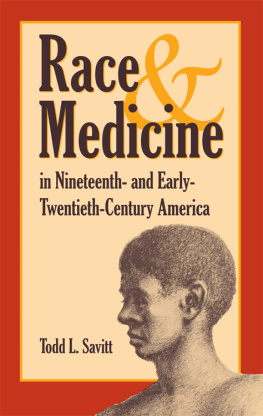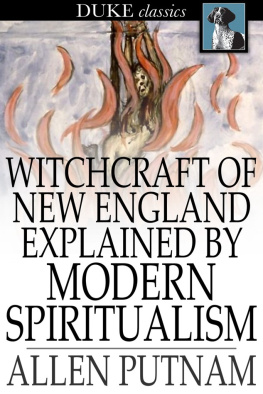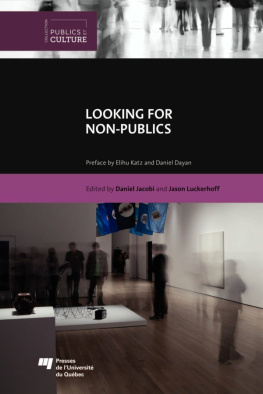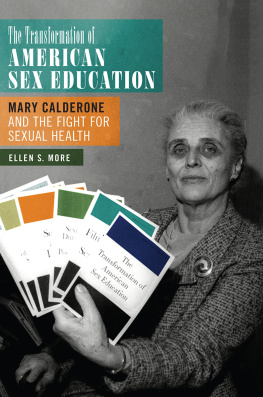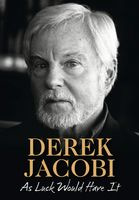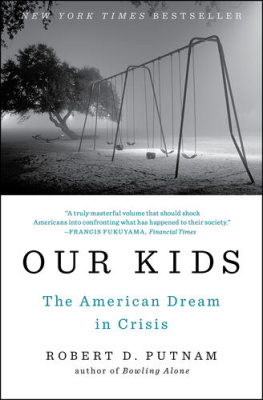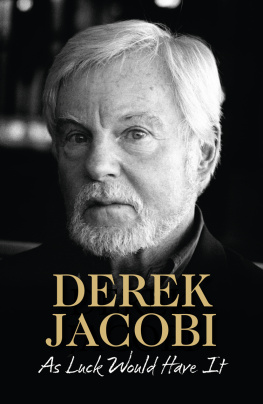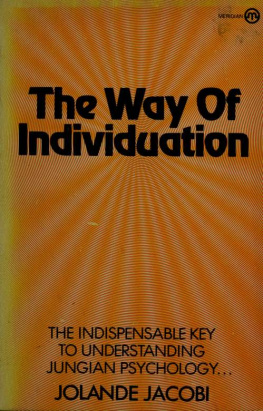MARY PUTNAM JACOBI & THE POLITICS OF MEDICINE IN NINETEENTH-CENTURY AMERICA
Studies in Social Medicine
ALLAN M. BRANDT AND LARRY R. CHURCHILL, editors
2009
THE UNIVERSITY OF NORTH CAROLINA PRESS
ALL RIGHTS RESERVED
MANUFACTURED IN THE UNITED STATES OF AMERICA
This volume was published with the assistance of the Greensboro Womens Fund of the University of North Carolina Press. Founding Contributors: Linda Arnold Carlisle, Sally Schindel Cone, Anne Faircloth, Bonnie McElveen Hunter, Linda Bullard Jennings, Janice J. Kerley (in honor of Margaret Supplee Smith), Nancy Rouzer May, and Betty Hughes Nichols.
Designed by Courtney Leigh Baker
Set in Arno Pro by Rebecca Evans
The paper in this book meets the guidelines for permanence and durability of the Committee on Production Guidelines for Book Longevity of the Council on Library Resources.
The University of North Carolina Press has been a member of the Green Press Initiative since 2003.
Library of Congress Cataloging-in-Publication Data
Bittel, Carla Jean.
Mary Putnam Jacobi and the politics of medicine in
nineteenth-century America / Carla Bittel.
p.; cm. (Studies in social medicine)
Includes bibliographical references and index.
ISBN 978-0-8078-3283-7 (cloth: alk. paper)
1. Jacobi, Mary Putnam, 1842-1906.
2. Women physiciansNew York (State)Biography.
3. Womens rightsUnited StatesHistory19th century. 4. Sex differencesHistory19th century.
1. Title. II. Series: Studies in social medicine. [DNLM: 1. Jacobi, Mary Putnam, 1842-1906.
2. Physicians, WomenUnited StatesBiography.
3. History, 19th CenturyUnited States. 4. Womens RightsUnited StatesBiography. 5. Womens Rights historyUnited States. WZ 100 J1596b 2009]
R692.J33B58 2009
610.82092dc22
[B]
2009011531
Portions of this work appeared previously in somewhat different form in Carla Bittel, Science, Suffrage, and Experimentation: Mary Putnam Jacobi and the Controversy over Vivisection in Late Nineteenth-Century America, Bulletin of the History of Medicine 79:4 (2005): 664-94; and Mary Putnam Jacobi and the Nineteenth-Century Politics of Womens Health Research, in Women Physicians and the Cultures of Medicine, edited by Ellen S. More, Elizabeth Fee, and Manon Parry (Baltimore: Johns Hopkins University Press, 2009), 23-51; both Johns Hopkins University Press, and reprinted with permission of Johns Hopkins University Press.
CLOTH 13 12 11 10 09 5 4 3 2 1
To my mother,
JEANNE MARGARET BITTEL,
and in memory of my father,
GREGORY CARL BITTEL (1940-2004);
who gave me history
Contents
2. ON THE BORDERLAND
A Medical and Political Education in Paris
Illustrations
George Palmer Putnam
Page one of Mary Putnams medical thesis, Theorae ad lienis officium
Mary Corinna Putnam, c. 1866
cole de Mdecine, Paris
lise Reclus, c. 1870
Reclus family circle
The New York Infirmary for Women and Children
Sphygmograph on a womans arm
Illustration from Mary Putnam Jacobis Studies in Endometritis, 1885
Sphygmographic tracings
The Butler Health Lift
Illustration from Mary Putnam Jacobis Case of Absent Uterus, 1895
Abraham Jacobi, c. 1869
Hiawatha Island, Lake George, N.Y.
Ernst Jacobi
Marjorie Jacobi
Ernst Jacobi Memorial, Hiawatha Island, Lake George, N.Y.
Calling card from Mary Putnam Jacobi to Fanny Garrison Villard, 1890
Jacobi and Schurz families, Lake George, N.Y.
Abraham Jacobi with grandchildren, c. 1917
Jacobi gravesite, Green-Wood Cemetery, Brooklyn, N.Y.
Acknowledgments
Writing a biographical study has been a constant reminder of how a life is never solitary, and neither is a book project. As was Mary Putnam Jacobi, this book was shaped by a large network of influence and many incredible minds; I just now hope the book can do them some justice.
I begin by expressing my deepest appreciation to my mentor and dear friend, Joan Jacobs Brumberg. From the first day I arrived at Cornell, she pushed me to think harder, dig deeper, and keep writing. Her encouragement and support continues today; I am extremely grateful for her many years of advice and inspiration.
Several other scholars inspired me in my early years of historical work and introduced me to the practice of history. It all began in a Women and Medicine course with Deborah Harkness and continued with the guidance of Paula Findlen, Karen Halttunen, Catherine Kudlick, and the late Roland Marchand. When I moved on to Cornell, I had the great pleasure of working with Mary Beth Norton, Peter Dear, Ronald R. Kline, and R. Laurence Moore. I also truly benefited from the Cornell Science Studies Reading Group during the earliest stages of this research.
I am extremely grateful to the many librarians, archivists, and historians who helped me gather materials for the book. In New York, I am thankful for the assistance of Arlene Shaner at the New York Academy of Medicine Library; Tara C. Craig at Columbia University Rare Book and Manuscript Library; Jeffrey I. Richman at Green-Wood Cemetery, Brooklyn; and Donald Glassman at the Barnard College Archives. I am also grateful for the assistance I received at the Mount Sinai School of Medicine Archives, the Museum of the City of New York, the New York Public Library, the New-York Historical Society, the Columbia University Augustus C. Long Health Science Library, the New York City Municipal Archives, the Weill Cornell Medical College Archive, and the New York Downtown Hospital. At Lake George, New York, I received assistance from Pat Bab at the Historical Society of the Town of Bolton, Bolton Historical Museum. I thank Jack Eckert at the Francis A. Countway Library of Medicine at Harvard Medical School in Boston, and the staffs of Houghton Library and the Schlesinger Library, Harvard University, in Cambridge, Massachusetts. I appreciate the ongoing assistance of Barbara Williams and Joanne Grossman at the Archives and Special Collections on Women in Medicine and Homeopathy, Drexel College of Medicine in Philadelphia. I thank the staff of the Library of Congress, and am particularly grateful to Kristi Finefield in the Prints and Photographs Division. Several people made it possible for me to carry on my research in Los Angeles: Alan Jutzi and the staff at the Huntington Library; the staff of the UCLA Louise M. Darling Biomedical Library, History and Special Collections; and Cynthia Becht, Rhonda Rosen, Glenn Johnson-Grau, Erik Osuna, Orlando Penetrante, and Molly Parks at the Von der Ahe Library, Loyola Marymount University (LMU).
I was overjoyed to meet descendants of the Jacobi family, who were equally enthusiastic to learn more about Mary and Abraham. Thanks to Susan Boyd Joyce, Katharine Jacobi Boyd, Katharine Ciganovic, and Wendy McAneny Bradburn for their suggestions, correspondence, phone calls, and willingness to share what they know. At Lake George, Susan kindly showed me Jacobi Point, Abraham Jacobi and Carl Schurz Park, and the shores where the Jacobis spent their summers. In addition, I am grateful to Mary Martialay and Judy Martialay for allowing me to visit and photograph Hiawatha Island.
Several institutions provided invaluable funding so that I could continue and complete this project. I am extremely grateful to the National Science Foundation for the Scholars Award, grant no. 0724513, that allowed me to finish the book, and I thank Frederick Kronz for his assistance through the grant process. The Gilder Lehrman Institute of American History provided me a research fellowship so I could return to New York. I am grateful to the Huntington Library for the Mayers and Helen Bing Fellowships, and to Roy Ritchie for welcoming me again and again to the library, my second (academic) home in southern California. Finally, the College Fellowship and Summer Research Grants from Loyola Marymount University offered me vital assistance during crucial points of revision; I give special thanks to Dean Michael Engh for supporting and encouraging research at LMU. Any opinions, findings, and conclusions or recommendations expressed in this book are solely mine, and do not necessarily reflect the views of the National Science Foundation or any of the above institutions.


